The rosemary plant (Salvia rosmarinus) is a fragrant herb that grows as a perennial rounded evergreen shrub. It features slender, needle-like, gray-green leaves on erect woody stems. And it produces clusters of small, light blue to white flowers typically in the late spring to early summer, though it can bloom at other points of the year as well. Plant rosemary in the spring after any threat of frost has passed. You can grow rosemary indoors, too, though it will grow quite large. The shrub has a moderate growth rate and spreads when planted. Description from The Spruce
Home > Plant Guide >
Scientific Name
Family
Garden Type
Wildlife
Native Plant Region
Light needs
Water Needs
Plant Type
Bloom Color(s)
Height
Width
Months in Bloom
Safe Beneath Power Lines?

We’d like to maintain accurate and robust plant listings. If you see information that is not correct or that could be added to improve the listing, please let us know. Or if you’d like to suggest a plant to add to our plant guide, you can use this form do so. Thank you!
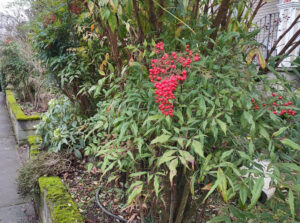
Some introduced plant species can diminish biodiversity. Other plants produce poisons that can harm wildlife. Learn what plants to avoid when figuring out what to plant or remove in your outdoor space.
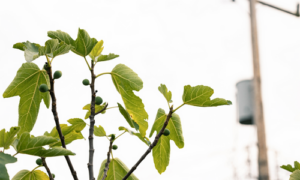
Learn about the diversity in pigeon populations in the United States and the implications of this variability on the species.
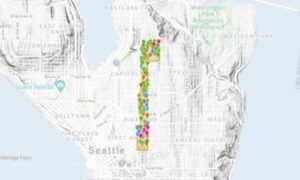
Get involved by sharing and mapping the birds, animals and nature around you to help the community understand the biodiversity in our neighborhood.
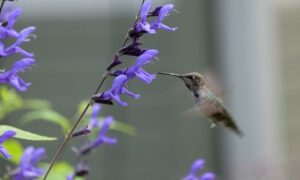
Protecting the trees and other vegetation that what we currently have is perhaps the most important way to ensure biodiversity in cities.
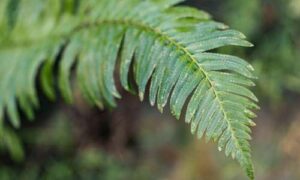
Despite the urban character and the high population density, a surprising diversity of life exists in Capitol Hill. Explore a few physical aspects of our urban ecosystems and meet some of its more-than-human residents.
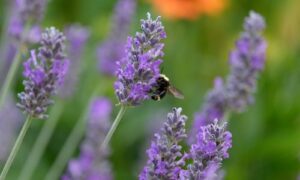
Check out our list of local wildlife-supporting plant stores and nurseries, organizations, and community science opportunities.
Nature of Your Neighborhood is a collaboration between Birds Connect Seattle, the Capitol Hill EcoDistrict, and the Seattle Bird Conservation Partnership. Our goal is to foster relationships between the people and the nature of their neighborhoods.